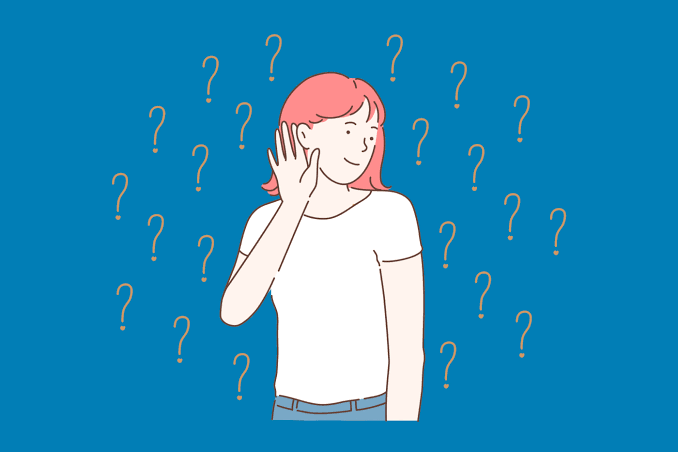It’s Deaf Awareness Week (3rd to 9th May 2021), and this year the theme is ‘Coming through it together.’
Many of us in the Tinnitus Tribe also have some difficulty hearing. That may be because we have hearing loss as well as our tinnitus. One study found that more than 98% of the tinnitus patients they tested, as part of their research, had a hearing loss. Another smaller study showed over 63% of the patients they tested with tinnitus also had hearing loss.
While that’s a quite a difference in % it shows that there are a lot of us with tinnitus who also have a measurable hearing loss. Often, that loss is in the range of the tinnitus sounds that we hear, but it can also be across a wider range of frequencies.
How do you know whether your struggle to hear conversations is down to hearing loss or tinnitus? And why should you care?
Hearing loss can be isolating
Thanks to lockdown you might not realize that your hearing has declined while you’ve spent a lot of time at home and communicating with the same few people. But now we are able to socialize more (here in the UK at least), you might start to notice that even in the small gatherings we’re allowed to hold you’re struggling to hear some people or keep up with the thread of conversation. Those difficulties can quickly lead to a reluctance to see people or participate in activities, for fear of mishearing someone and being embarrassed by that, or because having a conversation is exhausting.
That’s why it’s so important to get your hearing checked out if you become aware of any of the following:
• You find it hard to understand people in noisy places
• You ask people to repeat what they’ve just said
• You’re having to turn up the volume on your TV or your headphones
• You’re struggling on the phone or on video calls
• People sound like they are mumbling
• You’re increasingly tired or stressed from trying to work out what people are saying
Hearing loss can be helped
Hearing loss help doesn’t necessarily mean hearing aids. If you’ve been putting off asking for a hearing test, you might find that all you actually need is to have wax removed from your ears! That not only helps you hear better, but can also improve your tinnitus experience because the environmental noise you now hear can mask the noise in your head.
If you do have a measurable hearing loss it’s worth giving hearing aids a go. As well as helping you to hear better they can also help your tinnitus. The improvement in your hearing of everyday sounds will help mask your tinnitus. If you need additional masking help you can ask for a tinnitus program to be added to your hearing aids and/or play masking sounds directly into your aids via an app on your smartphone.
Treating hearing loss is important
According to the RNID there is strong evidence to show that:
• mild hearing loss doubles the risk of developing dementia
• moderate hearing loss leads to three times the risk
• severe hearing loss increases the risk five times.
An international review in medical journal, The Lancet, published in 2017, predicted that unaddressed hearing loss in mid-life was the highest improvable risk factor for developing dementia. It is potentially responsible for 9% of cases. That’s why it’s really important we get our hearing tested and take any help and support that is offered.
Taking the first steps
It’s easy to do a rough and ready hearing check without even asking your doctor. There are a number of tests available online, like this one for example.
If that shows a hearing loss, or you want a more thorough test, ask your GP to refer you to an appropriate provider in your area, or get recommendations for a private audiologist.
Don’t delay
I started wearing hearing aids at 37 and they opened up a world of music, socializing and work I would not have been able to access without them. What are you waiting for?

